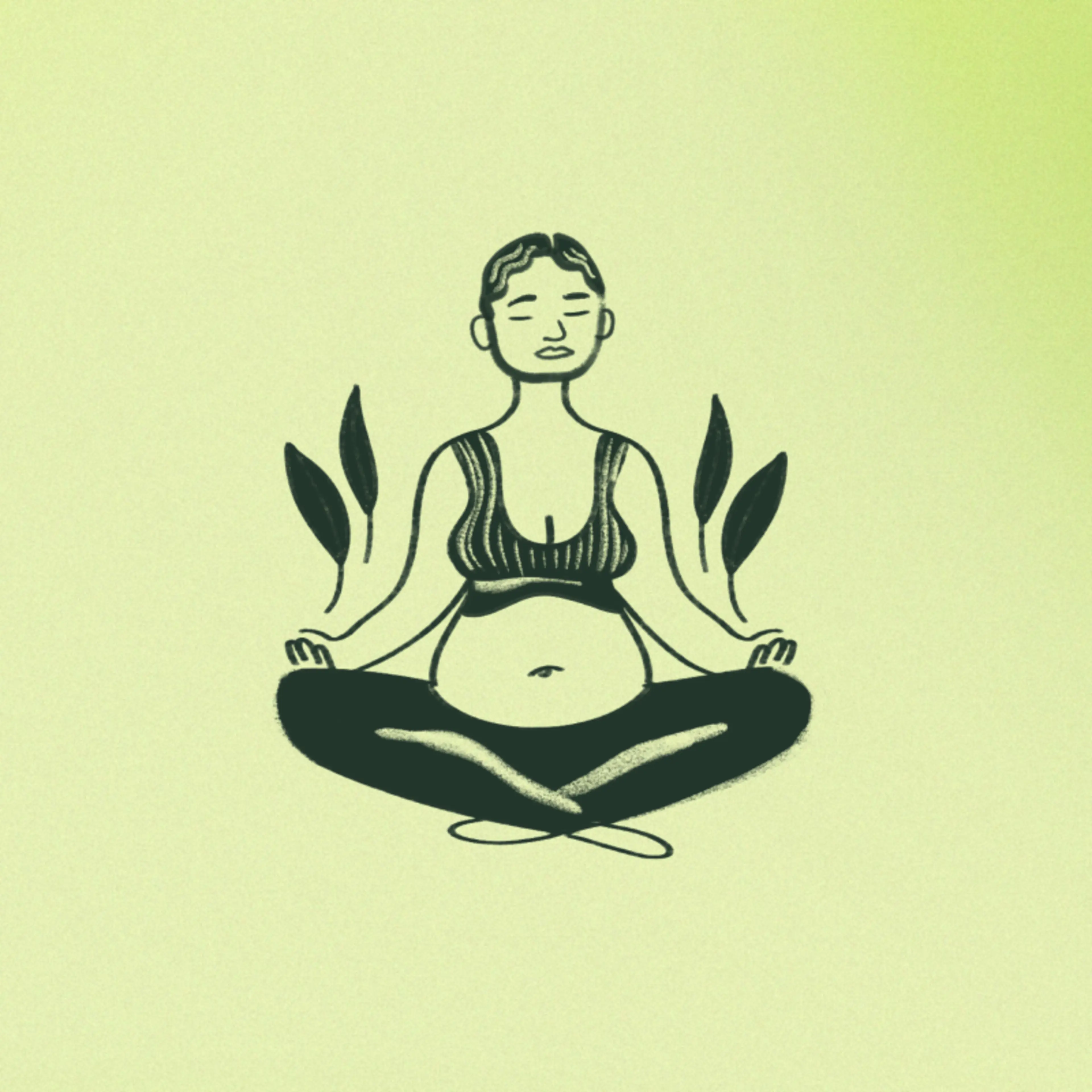Exhaustion is one of the most common symptoms of pregnancy. So it’s normal if you feel more tired than usual—or if you’ve never felt so tired in your life.
Because your body chemistry shifts during pregnancy, you need more sleep than ever, right from the start. You’re pumping out more progesterone to build up the uterine lining and prevent miscarriage, and these higher levels can also can lower your blood pressure and blood sugar, making you feel lethargic and queasy.
The trouble is that at a time when sleep is so important—and so wanted!—it may be tougher than ever to get. One National Sleep Foundation poll 2 found that 78 percent of people reported more sleep trouble during pregnancy than other stages of their lives. The reasons may be physical—back pain, sore breasts or other body changes keeping you up at night. Or they may be psychological, as you’re contemplating a major life change.
Hopefully, each night’s sleep will be restful, and you’ll never need this FAQ. But we’re answering all the questions you may have, just in case
Sleep Changes During Pregnancy
It all depends. Some people sleep well throughout pregnancy; others have more challenging stretches. In the first trimester, for example, that rise in progesterone may make you feel nauseous, and middle of the night bathroom trips may become more frequent.
Later on in pregnancy, as your body continues to change, it can be harder to find a comfortable position. “The growing fetus, especially in the third trimester, can push against internal organs, including the lungs, and make it difficult to not only breathe but get comfortable, which, if it happens overnight, can ultimately impact sleep,” says Dr. Nilong Vyas, sleep pediatrician with Sleepless in NOLA Sleep Consulting and medical reviewer for SleepFoundation.org. So do whatever it takes to get comfortable, including sleeping with an extra pillow (or five), a pregnancy body pillow or even sleeping on the couch.
How to Sleep When Pregnant
Best sleeping positions during pregnancy
There’s some pretty specific pregnancy sleeping position guidance out there. It’s all to ensure you’re feeling your most comfortable (and that you actually get some rest), but also to keep you and baby safe and healthy.
Sleeping on your side: Doctors recommend pregnant people sleep on their side to maximize blood flow to the placenta. In fact, experts say that sleeping on your left side 1 may be even better for this than the right, because it allows easier blood flow to and from your heart and keeps weight off your liver.
That said, sleep is important for you, so don’t stress out thinking there’s only one position you should be sleeping in during pregnancy. “The best sleeping positions for pregnancy are those where [you’re] most comfortable,” Vyas says. “Typically, for many, however, the best sleeping position is one where [you are] lying on [your] left side with a pillow between [your] legs.”
The facts on other sleeping positions:
Sleeping on your back: About midway through your pregnancy, you should try to stop sleeping on your back. Among other issues like backaches and difficulty breathing, the main reason for stopping back-sleeping 3 is because your growing uterus could put pressure on major blood vessels, which can cause lower blood pressure and decrease circulation to your heart and your baby. Don’t freak out if you wake up in the middle of the night on your back though. Just adjust, and you and baby will be fine.
Sleeping on your stomach: Sleeping on your stomach is generally okay, but you’re not really going to be able to do it once your bump gets big and round.
Pregnancy pillows can be your best friend for getting comfy while in a side-lying position, since they support your bump and provide cushioning for sore hips. “I encourage [pregnant people] to use as many props as needed to become comfortable in the bed, including pillows, positioners, and cooling blankets 4 ,” Vyas says.
When should I stop sleeping on my stomach during pregnancy?
Like we said above, stomach sleeping won’t really be possible once your belly gets large enough to show, which is typically near the middle of the second trimester (but depending on your individual body, you could start showing sooner than that or later). So if you’re usually a stomach sleeper, you can estimate that it’ll start to get uncomfortable around 16 to 18 weeks of pregnancy 5 .
If you’re worried that sleeping on your stomach will hurt your baby, there’s no conclusive evidence that it will. But if you continue sleeping on your stomach past the point where it stops being comfortable and causes your sleep to be disrupted, then there are risks involved with getting poor quality sleep during pregnancy 6 , including higher risk of preeclampsia, gestational diabetes and premature birth. But keep in mind that these risks aren’t directly associated with stomach sleeping.
Sleep Needs During Pregnancy
You’re likely going to feel like you need more sleep through your pregnancy than you did before. There’s no one magic number when it comes to sleep, though it’s recommended that “[non-pregnant] adults need seven to eight hours of sleep, whereas pregnant [people] need approximately one to two hours more,” Vyas says.
And at the same time, you may be feeling more uncomfortable and sleepless than ever, especially with multiple nighttime wakings. So it’s important to catch sleep where you can, even if that means mid-day naps. Your body should be your guide—if you’re more tired than usual, or you catch yourself nodding off during the day, you probably need more sleep. Try to get extra rest if and when you can.
Why Can’t I Sleep While Pregnant?
There are many (totally normal) reasons you may have trouble sleeping during pregnancy. You may be dealing with some or all of these sleep disruptors:
Back pain: Backaches are common during pregnancy. Try placing a pillow under your abdomen and/or one between your legs to ease some pressure.
Heartburn: Pillows can help with this annoyance too. Try propping up your upper body to lessen heartburn discomfort.
Snoring: Between extra nasal congestion and your uterus pushing on your diaphragm, you might find yourself snoring. Tell your doctor about this symptom—they may be able to recommend some treatments, but it also could be a sign of sleep apnea, high blood pressure and/or preeclampsia, which is a pregnancy condition that can lead to complications.
Restless legs syndrome: Just can’t keep those legs still? If you feel leg discomfort or creepy crawlies that won’t go away, it might be restless legs syndrom 7 . Sometimes iron and/or folate supplements can help, so talk to your doctor.
The need to pee: Some pregnant people have their sleep disrupted because they have to keep getting up to go to the bathroom, and it’s hard to settle back down afterwards.
Anxiety and/or stress: You (quite understandably) have a lot on your mind. After all, your life is going to change a lot once this baby comes and there are probably a lot of to-dos on your list. If anxiety is keeping you from falling or staying asleep, meditation sometimes can help. Apps like Calm 8 , Headspace 9 and Expectful 10 provide guided meditation sessions that may help quiet your mind.
How to Sleep Better When Pregnant: 7 Tips
If sleep trouble is an annoying but somewhat occasional occurrence, you can try any number of techniques to more effectively power down. Some ideas:
Establish a regular bedtime: The same time, every day. Even weekends.
Eat a little, not a lot, before bed: And if you do drink caffeine, save it for earlier in the day (avoid caffeine after 3pm).
Create a sleep haven: You want cool, dark and comfortable.
Ditch the screens 11 : The work too. Smartphones, tablets, laptops and TVs right before bed can make it hard to fall asleep.
Heartburn: If you’re suffering from heartburn, avoid spicy, greasy and fried foods, and wait at least an hour after eating before going to bed. If it’s bad, talk with your healthcare provider.
Nap when you can: Grabbing an hour here and there is great, as long as you can still fall asleep at night.
Exercise during the day: Gentle physical activity, like walking, swimming and yoga, can help you tire your body out and get more restful sleep.
If these techniques don’t help after a week or two, talk with your doctor about possibly getting treatment for insomnia, suggests Dr. Ina Becker, a psychiatrist in New York City.
Relatively little is known about pregnancy and the medications that typically treat insomnia—mostly because of the danger of testing potentially harmful drugs on pregnant women. Your doctor may recommend certain over-the-counter medications, including Benadryl and Unisom. They are classified as a “Category B” by the Food and Drug Administration, which means that animal studies didn’t show a risk to the fetus, but there aren’t well-controlled studies in humans. (Here is more on how the FDA classifies drugs for use during pregnancy. 12 )
“We use both (Benadryl and Unisom) with caution, after weighing risks of persistent severe insomnia versus risks—probably low risks—from medication,” Dr. Becker says.
There are also some options for prescription medication; talk with your doctor if you think you’re in need. Don’t be afraid to seek help if you’re struggling to sleep.
This article was reviewed for factual accuracy in May 2022 by Dr. Christine Sterling, board-certified ob-gyn, member of the Babylist Health Advisory Board and founder of the Sterling Life 13 , a resource for pregnancy and parenting.











